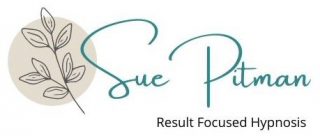If Israeli professor Eliahu Levitas has his way, women undergoing IVF will all have the benefit of hypnosis as his research shows how it can significantly increase IVF success rates.
According to Levitas’s team from Soroka Hospital in Beersheva, hypnosis can double the IVF success rate. Levitas’s study of 185 women found that 28% of women in the group who were hypnotised became pregnant, compared with 14% of those who were not.
“We gave hypnosis to a group of our patients during the most stressful part of IVF treatment – the transferring of embryos into the uterus. It’s a crucial point of the treatment, and the point in which the embryo comes in contact with the womb of the woman. It all builds up to that special moment, which is not very painful but is very stressful” said Prof. Levitas.
According to Levitas, that stress can cause complications during the transfer that can put the procedure at risk.
“Studies have been done before which claim that during this short period, there’s so much stress in the woman’s body that it may induce contractions, albeit tiny ones, which may interrupt or even expel the embryos from the uterus at the same moment we’re introducing them”.
“Other techniques have been employed like relaxants and tranquilisers, but nothing has worked well. On the other hand, hypnosis has been known for many years for producing central relaxation, and has even been used before surgical interventions to calm patients,” said Levitas.
The results showed that the hypnotised women resulted in double the IVF success rate (amount of pregnancies) compared to those who were not hypnotised.
“Performing embryo transfer under hypnosis may significantly contribute to an increased clinical pregnancy rate” Prof Eliahu Levitas.
Reference: Levitas, E et al, “Impact of hypnosis during embryo transfer on the outcome of in vitro fertilization-embryo transfer: a case-control study.” Fertility and Sterility – Vol 85, Issue 5, (2006), 1404-1408
Relaxation link with pregnancy
There is no doubt that undergoing infertility treatment involves a rollercoaster of emotions and can be very stressful, with many women reporting high rates of anxiety and depression. Therapies designed to help women reduce stress earlier in the treatment process result in higher pregnancy rates.
A new study published on 1st June 2011 in Fertility and Sterility, a publication of the American Society of Reproductive Medicine, shows that women who participate in a mind/body program such as self hypnosis or meditation for stress reduction while undergoing IVF treatment have a significantly higher pregnancy rate than those who do not (52% versus 20%).
The new study was lead by principal investigator Alice Domar, Ph.D, OB/GYN, Beth Israel: Deaconess Medical Center (BIDMC) and Executive Director of the Domar Center for Mind/Body Health at Boston IVF.
Domar’s team studied 100 women about to begin their IVF treatment at Boston IVF. All of the women were under 40 years of age, had normal hormone levels and none of them had participated in such a mind/body group to reduce stress before. Two groups were selected at random. One group participated in a stress reducing mind/body program and the other, a control group, did not receive any stress reduction program. All the women underwent their IVF treatment and the study tracked their progress and outcome through two IVF cycles.
After the first IVF cycle there were no differences in the pregnancy rates between the two groups. However, only half of the group participating in the mind/body stress reduction program had begun the sessions and those that had started were only a couple of sessions in.
By the second IVF cycle the majority of women in the mind/body study group had completed at least five sessions. “By that point, they had acquired some real life skills to deal with their stress……and that’s when we saw the significant increase in pregnancy rates.” said Domar.
52% of the women who completed the stress reduction program for infertility were successful with their second IVF cycle compared to 20% of the control group. This is a statistically significant difference.
“The study supports the theory that psychological distress may be an important detriment to IVF outcome. We worked with a small group, about 100 women total, so we’ll need to continue with a larger group of patients to see if the results bear out.“ said Domar, “but there is a strong indication that stress levels and IVF outcomes are linked and that intervening with mind/body therapies can help.”
References:Alice D Domar, Kristin L. Rooney, Benjamin Wiegand, E. John Orav, Michael M Alper, Brian M Berger, Janeta Nikolovski. Impact of a group mind/body intervention on pregnancy rates in IVF patients. Fertility and Sterility 2011. DOI.
Link to Caffeine and Female Fertility
Caffeine reduces muscle activity in the Fallopian tubes that carry eggs from a woman’s ovaries to her womb.“Our experiments were conducted in mice, but this finding goes a long way towards explaining why drinking caffeinated drinks can reduce a woman’s chance of becoming pregnant.” says Sean Ward, professor of physiology and cell biology, at the University of Nevada School of Medicine, who conducted the study.
Ward’s study was recently published in the British Journal of Pharmacology.
Human eggs are microscopically small, but need to travel to a woman’s womb if she is going to have a successful pregnancy. Although the process is essential for a successful pregnancy, scientists know little about how eggs move through the muscular Fallopian tubes. It was generally assumed that tiny hair-like projections, called cilia, in the lining of the tubes, waft eggs along assisted by muscle contractions in the tube walls.
By studying tubes from mice, Ward and his team discovered that caffeine stops the actions of specialised pacemaker cells in the wall of the tubes. These cells coordinate tube contractions so that when they are inhibited, eggs cannot move down the tubes. In fact these muscle contractions play a bigger role than the beating cilia in moving the egg towards the womb.
“This provides an intriguing explanation as to why women with high caffeine consumption often take longer to conceive than women who do not consume caffeine.” said Ward.
Discovering the link between caffeine consumption and reduced fertility has benefits.
“As well as potentially helping women who are finding it difficult to get pregnant, a better understanding of the way Fallopian tubes work will help doctors treat pelvic inflammation and sexually transmitted disease more successfully,” said Ward.
It could also increase our understanding of what causes ectopic pregnancy, an extremely painful and potentially life-threatening situation in which embryos get stuck and start developing inside a woman’s Fallopian tube.
Source: British Journal of Pharmacology. Volume 163, Issue 4, pages 745-754. June 2011.
Other research on how your mind affects your fertility:
1. A study in Fertility & Sterility (1998, vol 69) suggests that because mind/body programs are effective for reducing negative emotions that may impair IVF success, IVF patients should be offered this type of program.
2. Use of stress reducing therapies early in the process increase IVF success rates (in this study from 20% to 52%) Fertility and Sterility 2011.
Fear of birth leads to increase in length of labour
Research published on 27th June 2012 in the British Journal of Obstetrics and Gynaecology showed that women who were frightened of giving birth had longer labours and were more likely to need intervention. It is estimated that one in 5 women have severe fear of birth, sometimes also known as tokophobia. With NHS resources more strapped than ever, women are receiving even less antenatal education and in particular very little support for their emotional wellbeing.
As a result women are turning to providers outside of the NHS to help them prepare both physically as well as emotionally for birth. A detailed survey of more than 1250 women including 853 first time mothers, who learned self hypnosis as part of their birth preparation, indicated that these techniques lead to a significant reduction of any fear of labour as well as a reduction in intervention.
A staggering 89% said using the techniques had enabled them to overcome any fears connected with giving birth; 72% reported feeling calm during the birth with 61% feeling able to manage the pain in labour. Only 15% required a caesarean compared with the national rate of almost 25%. Overall, 95% of women felt they had benefited from learning self hypnosis as a way to help them have a more positive birth experience.
The recommendation of using hypnosis is one way that Obstetricians and midwives can provide this support. There are pockets within the NHS where these techniques are being both recommended such as the Newcastle upon Tyne. These techniques are a low cost, safe and practical antidote to the fear based, drug-dependent labour management culture that has developed in the UK over the last fifty years.



